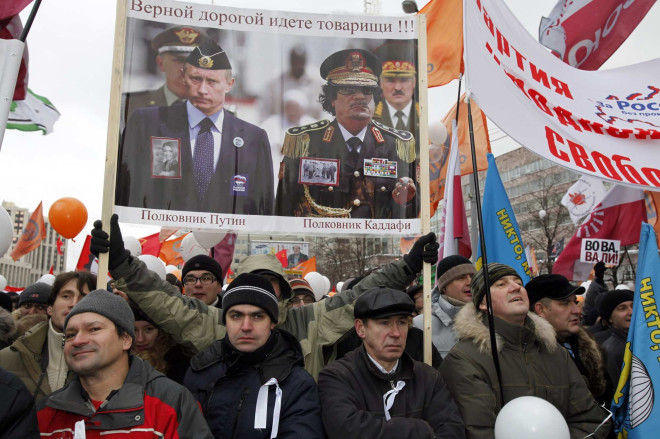The End of the Putin Era?
The recent protests in Russia against the allegedly rigged December 4th parliamentary elections mark the end of an era. Since rising to power in 1999, Vladimir Putin’s high domestic approval ratings have been immune to the criticism of his undemocratic policies. Putin provided the Russian people with the economic growth and political stability they desired, so most Russians hardly noticed as Putin scaled back democracy. Now the Russian people are no longer standing idly by as Putin manipulates the political system. This marks a sharp change in political attitudes.
Putin assumed the Russian presidency in 1999 when Boris Yeltsin resigned amid money laundering charges and a rock-bottom approval rating. Yeltsin’s economic policies in the post-Soviet transition were a resounding failure in the eyes of the Russian people. He attempted to convert the old Soviet-era centralized economy into a Western market economy immediately after the fall of the Soviet Union in 1991. As a result, prices and currency were exposed to market mechanisms after having been tightly controlled for decades and the government drastically cut back on welfare spending, causing a major shock to the economy. Russian GDP dropped, hyperinflation set in, and unemployment skyrocketed. While many Russians fell into poverty, rapid privatization of state owned corporations resulted in a small number of wealthy businessmen buying up most of Russian industry. Yeltsin’s reforms were a step backward for most Russians and corruption was rampant.
Into this picture stepped Vladimir Putin. During Putin’s presidency, Russia’s real GDP grew by an average of 7 percent each year, the percentage of the population in poverty declined from 30 percent to 14 percent, the middle class grew from 8 million people to 55 million people, and real incomes more than doubled. Putin promoted this economic turn-around through instating an aggressive energy policy, strengthening the currency, and combating corruption (with some help from high energy prices). Putin also restored Russia’s image on the world stage. Following the collapse of the Soviet Union, Russia appeared weak and was embarrassed. It didn’t help that Yeltsin’s struggles with alcohol were well documented. In contrast, Putin is a commanding public figure and has reasserted Russia as a world power–a source of pride for many Russians.
While he has been bolstering Russia’s economy and place on the world stage, however, Putin has also been rolling back democratic reforms. Most notably he has promoted censorship in the media and has ended the direct election of territorial governors. The governors are now appointed by the Kremlin. To overcome term limits, Putin had his hand-picked successor, Dmitry Medvedev, assume the presidency while Putin became the prime minister. Most Russians were content giving up a few democratic practices because Putin had restored their economic livelihood and national pride.

Yet this time is different. Putin is running for president again; this is constitutional since his third term would not be consecutive with the first two but it shows a clear unwillingness to cede power. Putin allegedly rigged the December 4th parliamentary elections and might also rig the presidential election, and this time the Russian people are coming out to protest. Tens of thousands have been marching in the streets of Moscow. Putin has responded by promising to create 25 million jobs, but that has not quelled the protests. Over the past decade, Russians have put their economic interests first and have supported Putin, but this time their decision is not an economic one. Putin continues to have effective economic policies but Russians want to be respected by their government and not be treated as pawns. Rigging an election is a step too far.
Will the massive protests end Putin’s political career? He will likely win his third term as president, fairly or otherwise, but his legitimacy is now tarnished. He will no longer carry the same clout that he once did and the opposition will not go away. The protesters are mostly urbanites of various political persuasions but protests are starting to pop up across Russia. Russia’s ever growing middle class is leading the charge for political reform and will be an increasingly powerful political force into the future. After holding a two-thirds majority in the last term, Putin’s United Russia party barely managed to maintain a simple majority of the parliament despite possible help from election fraud. While Putin still maintains popularity in many regions of Russia, his popularity is evidently waning.
Putin will win his third term because he is the status quo and the March election is coming up too soon for the opposition to dislodge him, but his days in power are numbered. Anger will continue to build the longer Putin stays in power, and I expect him to save face and decline to run in 2016 so that he appears to be leaving on his own terms. If he runs for a fourth term, voters will be ready to send him packing. The Russian people have shown that they will not tolerate Putin turning the presidency into a lifetime appointment.